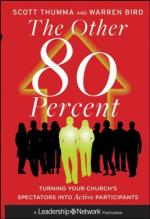|
This section contains 8,186 words (approx. 28 pages at 300 words per page) |

|
SOURCE: “The Spectator's Moral Economy,” in Modern Philology, Vol. 91, No. 2, 1993, pp. 161-79.
In the essay that follows, Knight considers the linking of morality and economics in the Spectator, maintaining that the journal delineated “the workings of ethics through an economic order in which wealth, achievement, and status become public representations of moral goodness.”
If the influential series of essays produced between 1709 and 1714 by Joseph Addison and Sir Richard Steele emerges from its present benign neglect, it may do so through the concept that periodicals create culture—that if art imitates life, life imitates art with equal significance. Such mutuality of imitation underlies the reformist proclamations of Addison and Steele; it also supports the efforts of contemporary critics to see those moralizing purposes in ideological terms. Those who find the Spectator now unreadable may be attending more to Mr. Spectator's self-definition as teacher of moral rectitude or advisor...
|
This section contains 8,186 words (approx. 28 pages at 300 words per page) |

|


